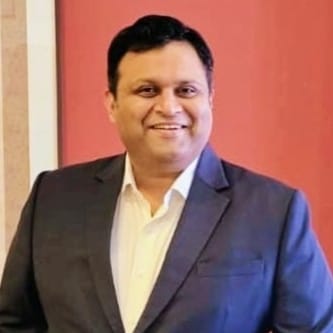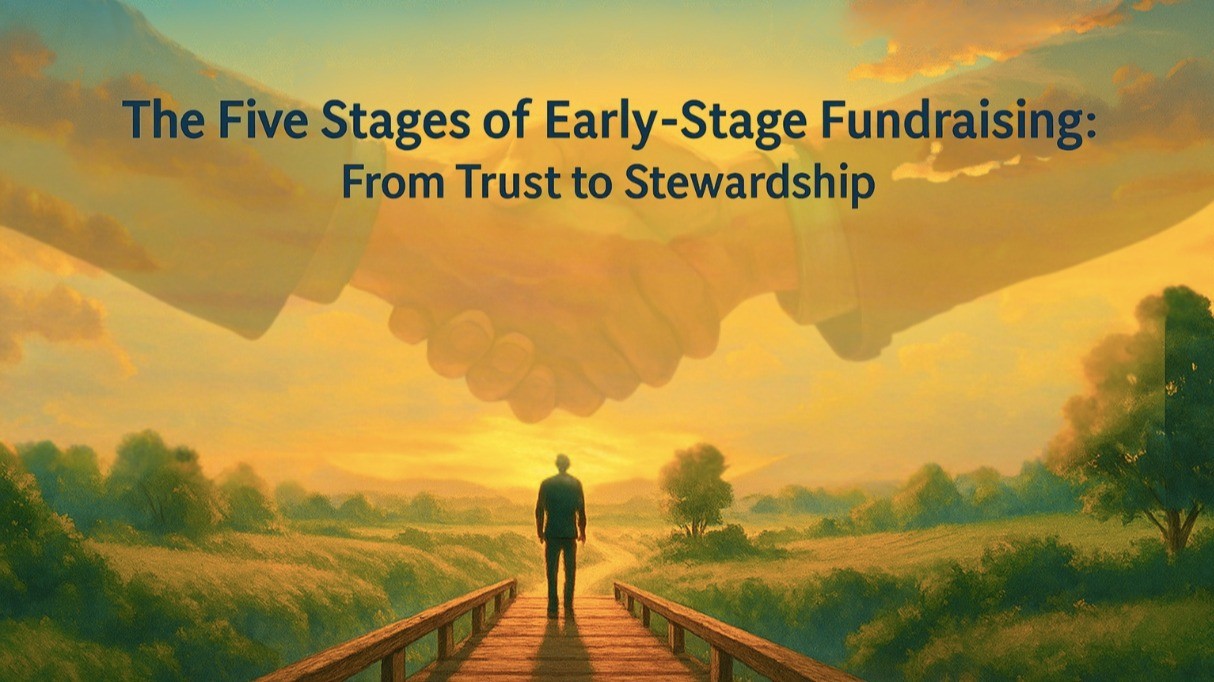From Early Belief to Lifelong Partnership: My Journey in Early-Stage Fundraising

bySantosh Nagasamy
“So… why Phitons?” That’s a question I hear often—especially from investors who are about to put their hard-earned savings into an early-stage company. The short answer: we’re tackling some of the most urgent challenges of our time—eliminating microplastics, enhancing soil security, improving food security, and reducing carbon footprint through sustainable packaging.
The longer answer? It’s about trust, belief, and the invisible journey that both founder and investor walk together.
I took over as CEO of Phitons to scale a breakthrough material innovation—one that doesn’t just replace plastic, but rewrites the way we think about waste. Our goal is bold but clear: build sustainable materials that do no harm, enrich where possible, and prove that green can be both viable and scalable.
But none of this would be possible without our earliest investors. They didn’t just invest in the product, they invested in me, the mission, and the possibility of a different kind of future. And that comes with immense responsibility.
Here’s what I’ve learned about raising early-stage capital—and how we’re building meaningful partnerships at Phitons.
Stage 1: Cultivating Trust
Early-stage fundraising doesn’t start with a pitch deck. It starts with a relationship. In this phase, personal trust matters more than financials.
- Who are you? Why this? Why now? Those are the questions behind the questions. When I share my reasons for leaving behind stability and stepping into uncertainty, it builds emotional clarity.
- Authenticity wins: The moment an investor sees your own commitment—your sacrifices, your urgency—they begin to open up. That’s the first door.
Lesson: If they don’t trust you, they’ll never trust the product—no matter how good it is.
Stage 2: Proving the Potential
Trust gets you to the table. Tangible proof of potential keeps you there.
Phitons addresses clear client pain points:
- For fresh produce brands: They lose up to 30% of their harvest post-harvest. Our Earthen Fresh packaging extends shelf life up to 3x without cold chain infrastructure.
- For retailers and FMCG brands: Sustainability feels like a trade-off. Our Earthen Kraft pouches and carry bags are compostable, durable, and PLA-free—designed to match plastic in performance.
- For industrial clients like auto part manufacturers: Plastic sheets are wasteful. Our DuraPack is compostable and engineered for rugged use.
- For farmers: Single-use mulch film creates microplastic buildup in soil. Our Earthen Agri sheets enrich the soil after use.
We show our investors the IP behind this, the clients already using it, and the roadmap ahead. This isn’t just storytelling—it’s world-building—painting a believable vision of where we’re going and how we’ll get there.
Lesson: Vision inspires, but evidence converts.
Stage 3: Due Diligence
Once the heart and the head are aligned, the investor naturally asks: “Am I missing anything?”
This is where due diligence comes in. It’s not personal. It’s professional.
- Be prepared: We maintain a living data room. Everything from our licenses, patents, compliance docs, and financials is organized and ready.
- Open access builds trust: We’ve invited potential investors to our facility to meet the team, see production firsthand, and validate the claims for themselves.
Lesson: Due diligence is not a hoop to jump through—it’s your chance to validate their belief.
Stage 4: The Emotional Last Step
There’s always a pause just before the commitment. The numbers add up. The model works. But still… letting go of personal capital is an emotional leap.
- Stop convincing: This is where you stop talking and let them breathe.
- Respect the moment: Many times, investors just need space. Pressuring them can backfire. The best relationships are formed when the investor chooses to step in—not when they’re pushed.
Lesson: Trust the process. Leave the door open. Let them walk through it when they’re ready.
Stage 5: Stewardship Begins
Once the investment is in, everything changes. Now you’re not just a founder—they’ve made you a custodian of their belief.
At Phitons, we built protocols for this:
- Monthly reports and updates—even when there’s no “good news,” we keep communication flowing.
- Transparent dashboards: We share our progress, our challenges, and the pivots we make along the way.
- Recognition: These investors are not just silent partners. They are the foundation on which this company stands.
Lesson: Fundraising doesn’t end at the wire transfer. It evolves into stewardship, discipline, and shared wins.
A Peek into Phitons
When I took over as CEO, Phitons had a powerful material innovation, but needed direction, structure, and scale.
Today:
- We’ve signed enterprise contracts with global brands.
- We’ve replaced hundreds of tons of single-use plastics with naturally compostable alternatives.
- We’re developing continuous synthesis for our foundational polymer resins—taking us one step closer to decentralized, scalable sustainability.
And we’ve done this thanks to the faith of our early investors.
Final Thoughts
Raising capital is not a transaction. It’s a transformation. A journey from trust to belief to partnership. Early-stage investors don’t just give money—they give you permission to dream bigger.
To entrepreneurs: Build trust first. Show proof. Respect the emotional journey. To our investors: Thank you. You believed before the world did—and I will never take that for granted.
If you’re exploring sustainable innovation, looking to back a company solving real-world pain points with real-world results, or just want to understand how Phitons is creating impact at scale—I’d love to connect.
We’re building something different. And it’s just getting started.

